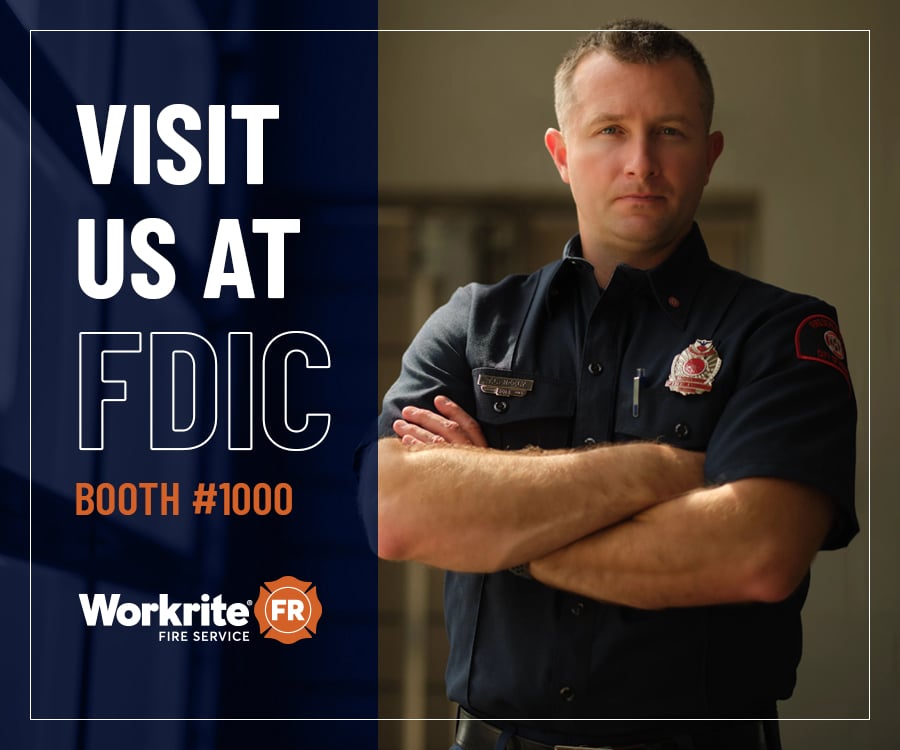Do You Have a Workplace Bully?

By Anastasia Miller, Ph.D.
There are many good things about working in Fire. One of them is the sense of “brotherhood” and “family” that is frequently brought up. But a workplace bully can sour that brotherhood.
But what happens when this isn’t the case? What happens when you are working in a station or on a crew that doesn’t get along? What if not only do you not only feel like a family, but the other people on your engine or truck are actively hostile towards you? They may play it off as “pranks”, but it doesn’t feel that way and it doesn’t stop, or they go far beyond what any reasonable person would consider harmless or fun. You try going up the chain of command but find officers who don’t seem to care or tell you to “grow a thicker skin”.
What toll does this take on a person’s psyche?
Because academics have to give everything two-dollar words, we call this type ofworkplace bullying behavior “workplace incivility” and the lack of response from anyone in a managerial capacity is called “lack of perceived organizational support”. This happens to be my area of research within the first response field because I think the toll from it is often overlooked as a leading cause of loss for a lot of good people from the field. While there hasn’t been much official research on first responders, if we take what data there is and we look at data from other areas, the data supports my suspicion.
Your Firehouse Policies
Both the International Association of Fire Chiefs (IAFC) and the Volunteer Fire Fighters Association (VFFA) have policies against bullying or making firefighters prove they “have what it takes”. This is in line with multiple studies, including some on firefighters, as it may be used as a cover for harassment against those of differing gender, race, and sexual orientations.
Sadly, the few academic articles out there show that it tends to be ignored by leadership and considered “insignificant” (at least until it becomes a major harassment lawsuit). I am going to speak in generalities because everyone responds in different ways, and I don’t speak for everyone. I am merely going to be summarizing the typical response, based on what the academic literature from hundreds of studies of thousands of firefighters, EMTs, law enforcement personnel, nurses, and other people in high-stress positions tend to do – as well as throw in some of my personal experiences from my own research and when I was in bunker gear.
Disengaging from firefighting
The first thing to happen is you disengage from the organization and possibly the profession. Because you have no one to turn to, you go inward and have to make a clean cut between what is you and what is the organization. You stop feeling pride in your unit (e.g. I was on the Engine and we had a friendly rivalry with the Truck in the same station). This might eventually expand to the point where you stop feeling pride in your personal accomplishments, such as making it through the academy or that you were serving your community and neighbors during the worst days of their lives. This takes its toll since this is how you feel when you go to work, and the “pranks” probably haven’t stopped, and your commanding officer is still telling you to “ignore it”.
Physical manifestations of stress
You might be feeling physically worse off as the stress takes its toll, or “trapped” in your job, station, or profession. You might have trouble sleeping. Could have new difficulty concentrating, changes in appetite, have a complete lack of motivation for just about anything. Any sort of symptom of emotional exhaustion. Hopefully, people turn to healthy coping mechanisms such as religion, friends and family, or exercise. However, it can lead to some pretty unhealthy coping mechanisms, which in firefighters, a favorite tends to be alcohol.
Can’t we just laugh it off?
Humor can be a good response, and I know that most who go into the field tend to have a good “dark humor” streak. Still, my personal research has found that those who use humor in EMS as their primary coping method or whose “humor” involves making fun of victims of accidents are actually more likely to experience burnout. So keep that in mind next time you notice someone on your shift you think might be joking a little too often or a little too inappropriately, particularly if they are under your command. If you think it might be a cover for them dealing with a bigger problem – there is a good chance it is.
Firefighter burnout
All of these together meet the academic definition of “burnout”. Once you hit this point, cynicism takes over and can hit all aspects of the job. Studies show that you are less vigilant with your own “safety behaviors”. People with high levels of burnout are less likely to check their SCBAs and other PPE on a regular basis. It doesn’t just impact themselves; they are also less likely to follow SOPs during emergency operations and are less likely to report or remove from service broken equipment when they find it during routine maintenance. That is huge and costs lives on a call.
I think it would be naive to say that all of this can always be prevented by just listening to our brothers and sisters in our departments – however, a lot of it does come down to poor communication. When I go to first response agencies and speak to the people, regardless of what I am researching, this is a topic that comes up every time. The frontline people often feel that leadership isn’t listening to any concerns they bring up, whether if it is about PPE, disrespectful coworkers, mandatory overtime, etc. They feel that they say something, and they never hear anything back.
Communicating to be heard
Upper leadership may never hear these concerns and they are just as confused once it hits a boiling point. Middle leadership is often trying to do so many things, they don’t realize they aren’t supporting either group. There aren’t any easy fixes, and every agency will have a unique culture that has to be taken into account. However, I think a good starting point would be clear policies from all in leadership that your “door is always open”, and they can at least bring concerns to you. The important part then is to make sure to follow up at some point or do something to make the lines of communication a two-way street. Explain that you’ve looked into the situation and although you can’t fix it now, you’ll try.
For example, even though you can’t buy the preferred disposable gloves for now, as soon as the prices drop – you’ll purchase them again (this was a major source of anguish at an agency I spoke to earlier this year and their biggest complaint was they never got an answer why management stopped buying the gloves). Or that their feelings are valid and you will talk to the parties involved. By knowing that they work in an organization that supports and listens to them, employees are more likely to feel valued. They are more likely to take pride in their work. They are more likely to do their job, which is a pretty great one for firefighters.
Podcast
Contests & Promotions
















